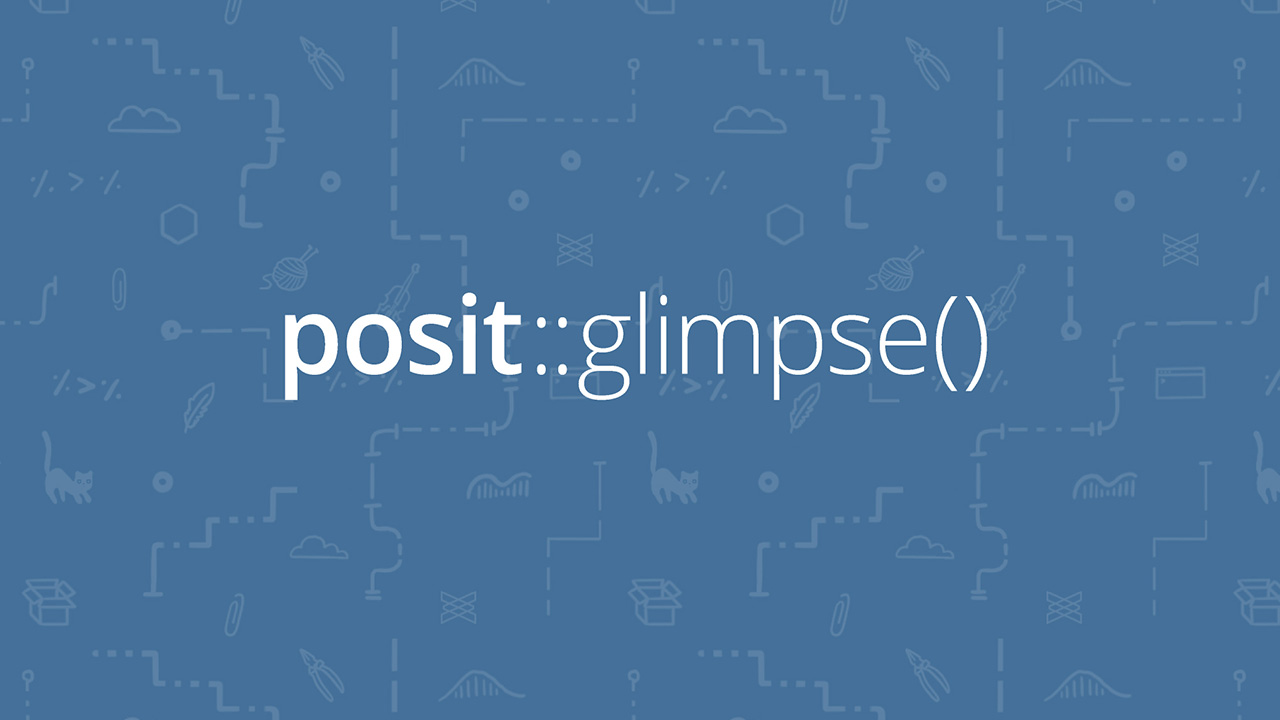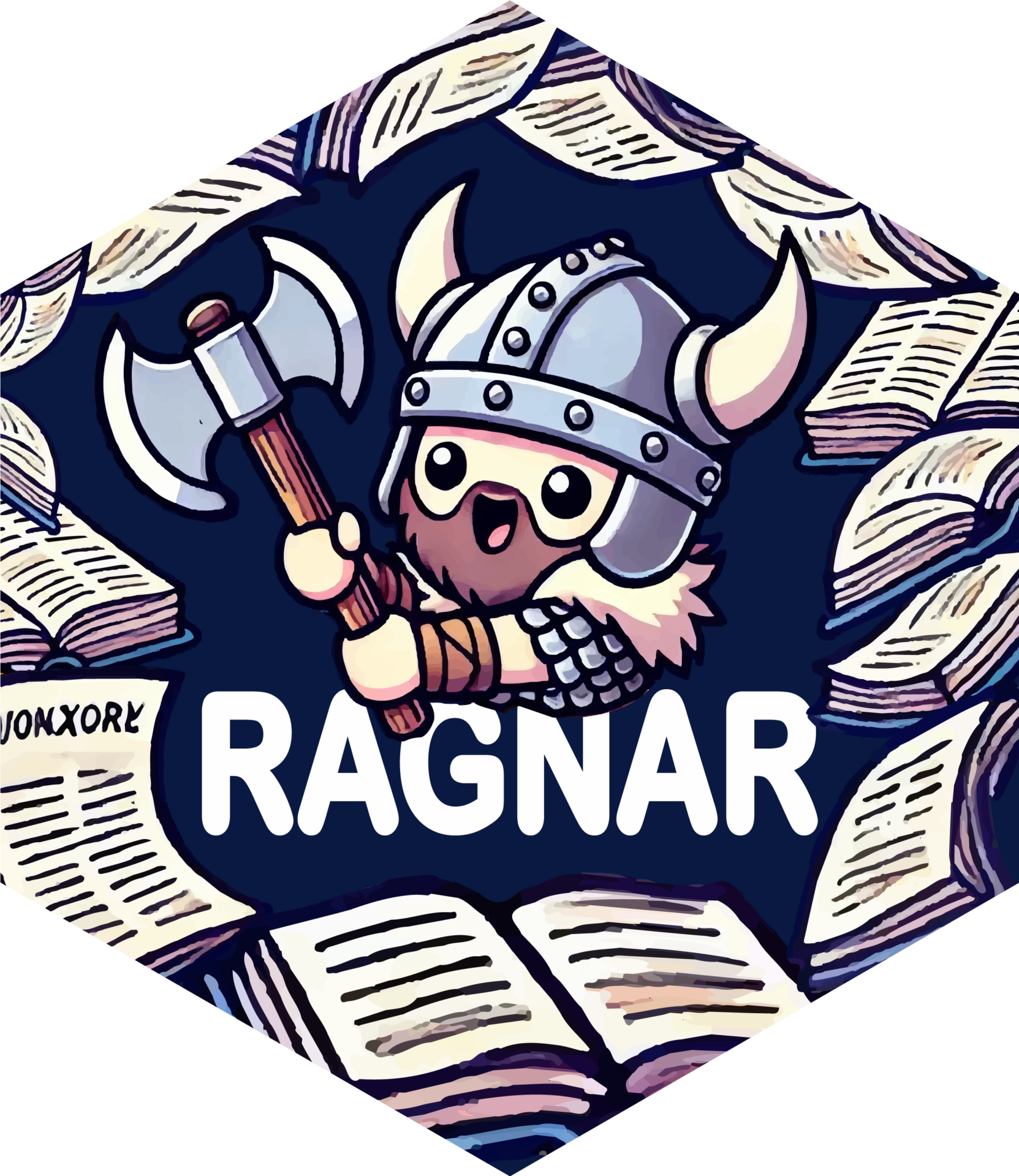posit::glimpse() Newsletter – August 2025

Welcome to our newsletter, posit::glimpse()!
If you’re currently reading this on our blog, consider subscribing to Stories on our subscription page to receive this newsletter directly in your inbox.
posit::conf in Atlanta is a few short weeks away (September 16-18) and with a full virtual program available, we really hope you can find a way to join us!
Key Product Updates and New Releases
Positron, a new IDE for data science
Positron 2025.08.0 is the second stable release of Posit’s IDE for data science. Positron is built on Code OSS, with a cohesive set of new features created specifically for data science work. These include a performant and feature-rich Data Explorer, a fluent workflow for developing data apps (Shiny, Streamlit, Dash, FastAPI), notebook and Quarto support, as well as fully integrated panes to manage your variables, plots, database connections, and more.
- New in this release: the Positron Assistant is available as a public preview, a new Alt+Enter keybinding to run the current statement without advancing, and upgraded R diagnostics and outlines.
The upcoming Posit Workbench release will make Positron sessions generally available; for a quick look at what sets Positron apart, check out A quick tour of Positron.
LLM-powered tools continue to evolve






- Positron Assistant and Databot have launched! Both features are available in Positron’s latest release. Positron Assistant is a coding assistant with access to your R or Python session, and Databot is an exploratory data analysis assistant designed to speed up exploring and understanding your data. The announcement also covers good insights into how Posit thinks about LLMs and their usage in data science more generally, avoiding hype and focusing on responsible usage.
- ellmer 0.3.0 is the latest release of the R package for working with large language models—extracting structured data, invoking tools, and more. The 0.3.0 release adds a simplified chat() interface, cleaner tool() definitions, automatic retries, parallel and batch text capabilities, and more accurate cost tracking.
- chatlas 0.10.0 was just released and adds a large number of new models to the previous set, including Deepseek, Hugging Face, Mistral and Portkey. If you missed chatlas 0.9.0 a few weeks ago, support for MCP servers was added, filling out the tool calling options.
- mcptools 0.1.0 brings the Model Context Protocol (MCP) into R—enabling R to act as both an MCP server (so tools like Claude Code, VS Code Copilot Chat, or Cursor can run R code during conversations) and an MCP client (letting LLM-powered workflows via ellmer access data from sources like Slack, GitHub, Google Drive, or Confluence).
- ragnar 0.2 brings Retrieval-Augmented Generation (RAG) to R via a tidy, transparent pipeline: from converting documents (web or local) into Markdown, chunking them meaningfully, embedding and storing them in DuckDB, to retrieving relevant content using semantic or keyword search. ragnar lets you inspect each step of the workflow, maintains metadata throughout, and integrates seamlessly with ellmer. You can grab it from CRAN and be experimenting in no time.
- mall 0.2.0 runs Natural Language Processing (NLP) operations against your data. This release adds support for external LLM providers like OpenAI and Gemini.
Quarto
Quarto 1.8 is a few weeks from full release and available now as a dev build. This version includes lots of fixes and important dependency updates, along with improved accessibility and extended brand support—most notably improved light and dark mode handling in HTML and revealjs.
quarto R package 1.5.0 was just released and adds dynamic metadata (pass R values to YAML), Markdown-in-HTML tables, light/dark theme helpers for plots and tables, improved R-script workflows, project-path utilities, and expanded CLI automation.
Last in the world of Quarto, a new Marimo Quarto extension is available that brings reactivity from Python notebooks into Quarto documents. You can see it in action in this walkthrough video.
Shiny
Shiny for Python 1.4.0 recently added full support for application bookmarking — a long-awaited feature that lets users persist and restore app state. This is especially useful for reproducible dashboards. It also improves interactivity in ui.Chat() and MarkdownStream(), deprecates old stream result methods, and improves layout rendering logic in Shiny Express apps.
Select package releases
quickr 0.1.0 was recently added to CRAN. It compiles type-annotated R functions to deliver significant speedups and runtime type checks. Looking for Rust or C++ level performance for some numeric focused R code without a rewrite, quickr might have the solution. For a clear performance write-up, check out Jonathan Carroll’s excellent analysis!

The gt‑extras v, built by amazing intern Jules, just hit version 0.8.0. Gt-extras enhances Python’s great‑tables with helper functions for plots, icons, color gradients, and themes that make your tables more expressive and visually engaging . You can explore its capabilities at a glance by checking out the examples page —it’s a great way to discover what you can do with just a few .pipe() calls.
purrr 1.1.0 now enables production-ready parallel and distributed computing thanks to the mirai package.
webR 0.5.4 adds sharing URLs for the webR app, filesystem support for JupyterLite 0.6, and an upgrade to the Emscripten runtime.
Learning and Resources
If you’ve been meaning to try out Orbital—for turning your R and Python models into SQL so you can bring the model to the data—your procrastination has paid off. Whether you use Databricks or Snowflake, are really into XGBoost, or have been exploring Marimo notebooks, there are some great walkthroughs to help you get started.
Experimentation with Positron continues to grow, and if you’re coming from VS Code or RStudio, these guides are tailored to help you make the best use of your time.
In collaboration with Veerle Eeftink – van Leemput the first part of an educational series on LLMs, “What LLMs Actually Do (and What They Don’t)”, has been released. The first part demystifies the basics of LLMs, cutting through the jargon and explaining the building blocks in clear, simple terms. Part 2 (coming soon) will walk through crafting prompts, parsing responses, and helping you through your first programmatic calls to LLMs via chatlas (Python) and ellmer (R).
If your challenge to experimenting with LLMs is access to a model, this guide can help you get started with a free local model.
Around the community
Posit support for Typst: We’ve announced our support for Typst by funding a full-time engineer for a year. We recently used Quarto and Typst to build Posit’s latest PBC report, and we are big fans.

The Test Set: The Test Set is a new podcast series from Posit, with hosts Michael Chow, Hadley Wickham, and Wes McKinney. They talk all things data and more with guests like Mine Çetinkaya-Rundel and Roger Peng. Listen and watch episodes on thetestset.co, Apple Podcasts, and Spotify.
2025 Table Contest and Plotnine Contests: These contests celebrate great visual displays of information by way of tables and plots, all made possible by open-source software.
Drop the deadline in your calendar (Friday, October 3, 2025), check out previous years winners for inspiration, and start planning your masterwork submissions!
posit::conf: Our annual conference is happening in September! It’s not too late to join us (there are some virtual options for those as well if making the trip is too much!). Learn more and register today.
Until next time, we appreciate you including us on your data science journey—here’s to learning, building, and growing together!